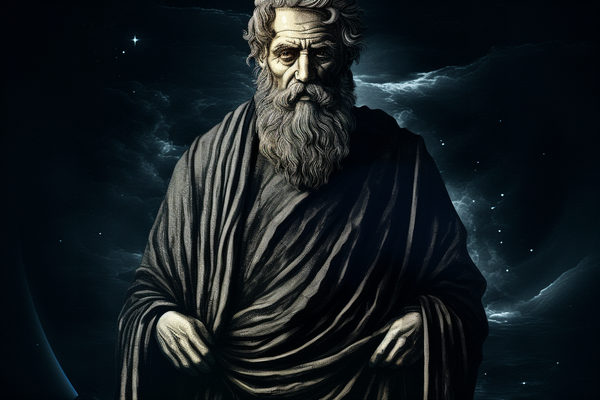Leucippus of Miletus
Ever wondered if your choices are truly your own? Leucippus' ground-breaking theory of atomistic determinism challenges our most basic beliefs about free will and changed how we view reality.

Leucippus of Miletus, a pre-Socratic philosopher who is thought to have lived in the 5th century BCE, is a shadowy figure about whom little is definitively known. He is credited with the initial introduction of atomistic theory—an idea that would be elaborated upon by his student Democritus and subsequently shape scientific and philosophical thought for centuries. Due to the lack of primary sources, much of what is known about Leucippus is derived from later writers such as Aristotle and Theophrastus.
Early Life and Influences
Not much is known about Leucippus' early life, including his exact dates of birth and death. He is believed to have been a native of Miletus, or possibly Abdera, two cities with rich intellectual histories. Miletus was a renowned centre for early Ionian philosophy, boasting figures like Thales and Anaximander.
Philosophical Contributions
Atomism: The Foundational Theory
Leucippus is best known for his development of atomistic theory, which posited that everything in the universe is composed of indivisible particles called 'atoms' (from the Greek 'atomos,' meaning 'indivisible'). This theory stood in contrast to the prevailing Parmenidean notion that change and plurality are illusory. Leucippus asserted that not only is change real, but it can be explained through the interactions of atoms in the void (empty space).
The Nature of Reality
Building on the work of earlier philosophers like Heraclitus and Parmenides, who grappled with the nature of change and permanence, Leucippus offered a reconciliatory view. He proposed that while atoms themselves are unchanging and indivisible, their interactions and combinations in the void produce the mutable and diverse world we perceive.
Ethical and Epistemological Views
While Leucippus is primarily known for his contributions to metaphysics and natural philosophy, he also touched upon areas of ethics and epistemology. Though fragmentary, his works suggest a deterministic worldview where human actions are the result of atomic interactions. This perspective had implications for ethical theory, as it challenged the notion of free will.
Reception and Influence
Leucippus' theories found a more detailed and systematic expression in the works of his disciple, Democritus. They were critically discussed by Plato and Aristotle, who were largely critical but also intrigued by the atomistic view of the universe. In the modern era, his ideas found new life in the scientific revolutions of the 17th and 18th centuries, providing a theoretical framework for early chemistry and physics.





